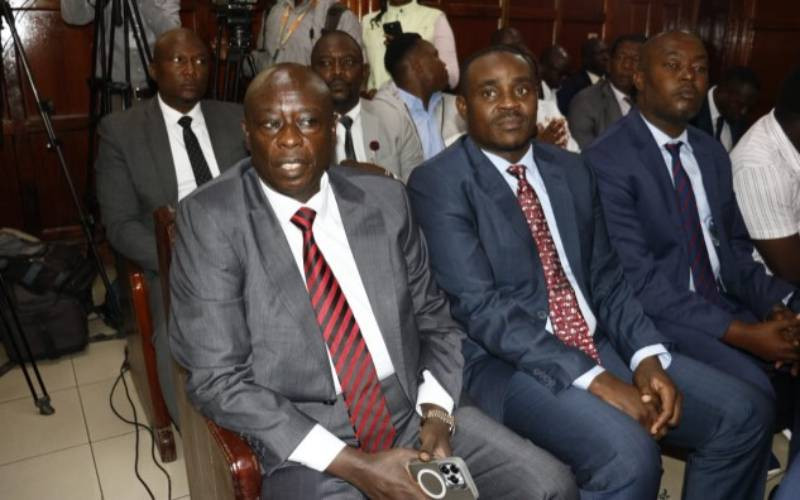×
The Standard e-Paper
Home To Bold Columnists

Impeached DP Rigathi Gachagua and lawyer Paul Muite at the Milimani Law Court on Tuesday, October 22. [David Gichuru, Standard]
The hearing for impeached Deputy President Rigathi Gachagua is ongoing at the Milimani Law Courts in Nairobi.